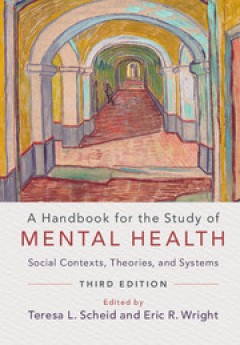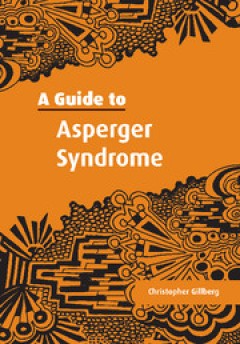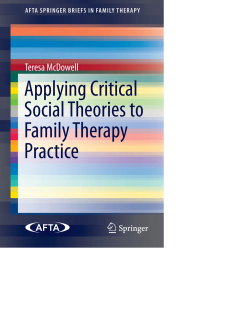Filter by

Textbook of Patient Safety and Clinical Risk Management
Implementing safety practices in healthcare saves lives and improves the quality of care: it is therefore vital to apply good clinical practices, such as the WHO surgical checklist, to adopt the most appropriate measures for the prevention of assistance-related risks, and to identify the potential ones using tools such as reporting & learning systems. The culture of safety in the care environme…
- Edition
- Ed. 1
- ISBN/ISSN
- -
- Collation
- 496
- Series Title
- -
- Call Number
- .616 TEX t

Testing Knowledge: Toward an Ecology of Diagnosis, Preceded by the Dingdingdo…
"This volume presents the collective adventure of Dingdingdong, the Institute for the Co-production of Knowledge about Huntington’s Disease, founded in 2012 between Paris and Brussels. Katrin Solhdju’s Testing Knowledge: Toward an Ecology of Diagnosis pursues the question of taming the violence of the new species of medical foreknowledge represented by genetic testing. Adopting historical a…
- Edition
- Ed. 1
- ISBN/ISSN
- 9781953035455, 9781953035462
- Collation
- 194
- Series Title
- -
- Call Number
- 616.8 SOL t

Magnesium in the Central Nervous System
Our understanding of the physiology and biochemistry of the brain has improved dramatically in the last two decades. In particular, the critical role of cations, including magnesium, has become evident, even if incompletely understood at a mechanistic level. The exact role and regulation of magnesium in particular remains elusive, largely because intracelluar levls are so difficult to routinely…
- Edition
- Ed. 1
- ISBN/ISSN
- 9780987073051
- Collation
- 356
- Series Title
- -
- Call Number
- 616.8 MAG m

A Handbook for the Study of Mental Health
With chapters written by leading scholars and researchers, the third edition of A Handbook for the Study of Mental Health provides an updated, comprehensive review of the sociology of mental health. The volume presents an overview of the historical, social, and institutional frameworks for understanding mental health and illness. Part I examines the social factors that shape psychiatric diagnos…
- Edition
- -
- ISBN/ISSN
- 9781316471289
- Collation
- -
- Series Title
- -
- Call Number
- -

Concreteness and Specificity in Clinical Psychology Evaluations and Intervent…
This provocative volume updates L'Abate's signature ideas, focusing in particular on the concepts of concreteness and specificity as basic tenets of evaluation and therapy. Noting society's growing familiarity with technology, current concerns about treatment accessibility, and widespread interest in wellness promotion, he argues for remote-writing exercises targeted to specific client issues a…
- Edition
- -
- ISBN/ISSN
- 9783319132846
- Collation
- xxi, 352 pages
- Series Title
- -
- Call Number
- 150

A Guide to Asperger Syndrome
Asperger syndrome is an autism spectrum disorder, usually with life-long consequences for social interaction and behaviour. The disorder is neurodevelopmental and symptoms appear in the preschool years. Individuals affected are often misunderstood and sometimes misdiagnosed when they apply for help. A Guide to Asperger Syndrome is an accessible 2002 handbook for all those touched by Asperger sy…
- Edition
- Ed. 1
- ISBN/ISSN
- 9780511543814
- Collation
- -
- Series Title
- -
- Call Number
- -

Applying Critical Social Theories to Family Therapy Practice
This volume applies critical social theories to family therapy practice, using sociopolitical context for a clearer focus on the power dynamics of couple and family relationships. Its decolonizing approach to therapy is shown countering the pervasive cultural themes that grant privilege to specific groups over others, feeding unequal and oppressive relationships that bring families and couples …
- Edition
- Ed. 1
- ISBN/ISSN
- 978-3-319-15633-0
- Collation
- XV, 75
- Series Title
- AFTA SpringerBriefs in Family Therapy
- Call Number
- 159 MCD a

Religion and Men's Violence Against Women
This reference offers the nuanced understanding and practical guidance needed to address domestic violence, sexual assault, and human trafficking in diverse religious communities. Introductory chapters sort through the complexities, from abusers' distorting of sacred texts to justifying their actions to survivors' conflicting feelings toward their faith. The core of the book surveys findings on…
- Edition
- -
- ISBN/ISSN
- -
- Collation
- -
- Series Title
- -
- Call Number
- -

A Guide to the Extrapyramidal Side-Effects of Antipsychotic Drugs
It is often implied that antipsychotic-induced extrapyramidal side-effects are irrelevant to modern psychiatric therapeutics, rendered historic by newer, better treatments. This myth arises from limited awareness of the depth and breadth of neurological disruption antipsychotics can mediate. This volume discusses the extensive clinical boundaries of acute dystonias, drug-induced parkinsonism, a…
- Edition
- -
- ISBN/ISSN
- 9781139149112
- Collation
- -
- Series Title
- -
- Call Number
- 615 OWE g

A Guide to the Extrapyramidal Side Effects of Antipsychotic Drugs
Antipsychotic drugs have revolutionised the management of major psychiatric disorders and the outcomes of those who suffer from them. They are, however, possessed of a range of adverse effects, amongst the most frequent and distressing of which are those resulting in disturbance of voluntary motor function. Extrapyramidal side effects - or E.P.S. - are still poorly recognised and not infrequent…
- Edition
- -
- ISBN/ISSN
- 9780511544163
- Collation
- -
- Series Title
- -
- Call Number
- -
 Computer Science, Information & General Works
Computer Science, Information & General Works  Philosophy & Psychology
Philosophy & Psychology  Religion
Religion  Social Sciences
Social Sciences  Language
Language  Pure Science
Pure Science  Applied Sciences
Applied Sciences  Art & Recreation
Art & Recreation  Literature
Literature  History & Geography
History & Geography